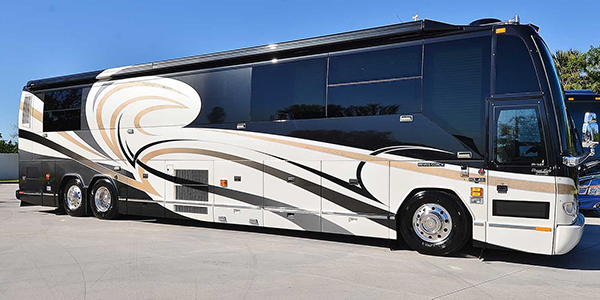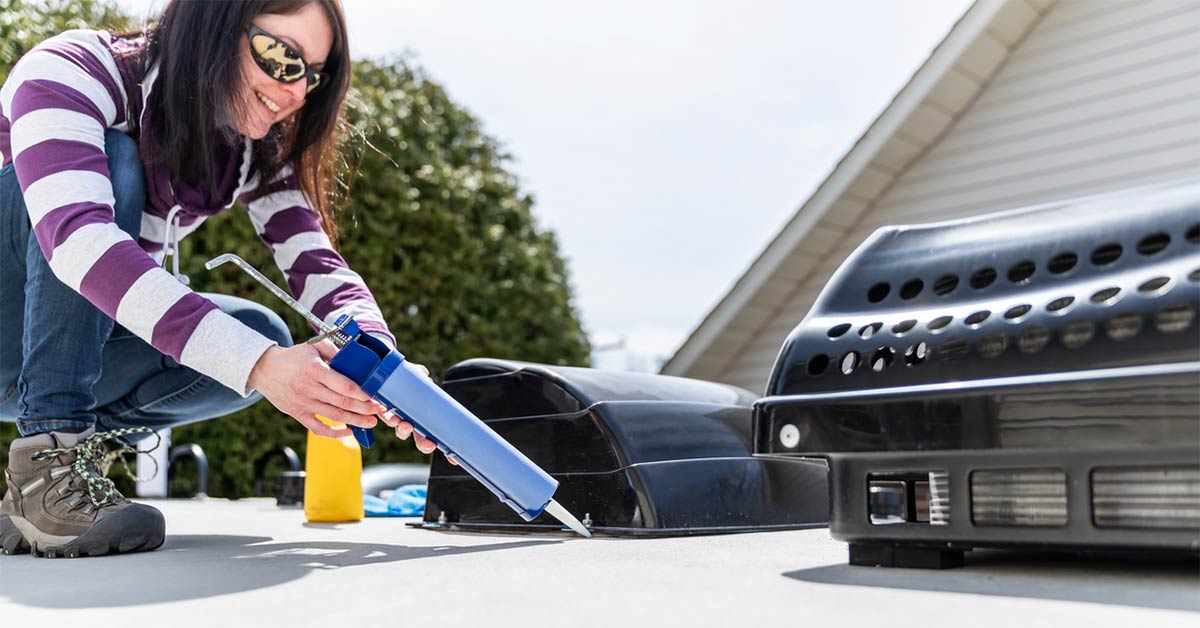One type of RV that is becoming increasingly popular is the bus conversion RV. There are many positives to investing in a bus conversion. All you have to do is be willing to put in the work.
A bus converted RV can be designed to travel millions of miles if it is well maintained. These types of RVs also come with many built-in safety features that don’t have to be bought. One convenience that bus conversion owners will brag about is their load capacity. But what’s the biggest plus to a bus conversion? Many would say it’s turning something mundane into your ultimate dream home-on-wheels. You can make a bus conversion completely unique to you and your RV needs.
If you’re still undecided about converting a bus into an RV, here are some of the things you should take into consideration:
Choosing Your Bus
A bus conversion may be one of the most difficult renovations out there, but it’s also one of the most rewarding. Your converted bus will be one of your biggest investments. Therefore, there are many factors to consider both before and after the conversion.
Before the Bus Conversion
Once you purchase your bus, it’s a good idea to speak with an RV Insurance Specialist who is very familiar with what type of coverage your bus conversion requires. This is because bus conversions are often hard to define in the world of insurance. You’ll want to get a free quote at (800) 499-8943 to see how much it will cost to insure your converted RV. While many carriers do not cover these types of RVs, our knowledgeable agents know which carriers offer Specialty RV Insurance policies that meet the unique needs of bus conversion owners.
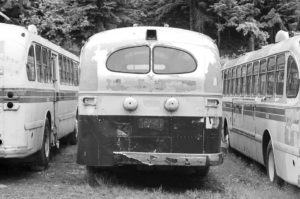 It’s important to insure your bus right away, even if you don’t plan to take a long trip until it’s fully renovated. If there is any kind of physical damage, vandalism or theft, you will be at a complete loss without the proper insurance. Remember, Liability Insurance alone may be cheaper, but Comprehensive Insurance covers physical damage if something happens to your RV while you’re renovating.
It’s important to insure your bus right away, even if you don’t plan to take a long trip until it’s fully renovated. If there is any kind of physical damage, vandalism or theft, you will be at a complete loss without the proper insurance. Remember, Liability Insurance alone may be cheaper, but Comprehensive Insurance covers physical damage if something happens to your RV while you’re renovating.
Older Bus Conversions
Do you dream of having a huge bus, maybe even a tour bus, for your camping adventures? Many people renovate old buses and turn them into unique and luxurious RVs. However, you should have it inspected by a mechanic if it’s 20 years or older. This will help ensure that the vehicle’s systems are up-to-date and working properly. Also, if you’re thinking of buying an older bus, know that they come under greater scrutiny by insurance companies. This may be something you want to take into consideration before purchasing.
School Bus Conversions
Yep, all the cool kids are doing it. It’s becoming very popular to buy a school bus and turn it into an RV. However, there are reasons that many RV Insurance companies try to avoid insuring converted school buses. One reason is that they have narrow axles. This causes the additional weight of a bus conversion to be top heavy. And that makes it more prone to rollovers. School bus conversions have a history of being the most accident-prone of the three bus conversion types. Therefore, it’s a good idea to keep safety in mind when renovating your school bus.
Are Bus Conversions More Expensive Than RVs?
Bus conversions are not necessarily more expensive than other types of RV remodels. Of course, if you buy a professionally renovated bus, it can cost you over $500,000. Many people opt to do their own bus conversions over buying an already renovated one for sale. Most professionally converted buses are done on an expensive chassis like the Prevost, GM, Eagle or MCI chassis.
Old Greyhound buses tend to be a little more affordable. If a bus conversion is done correctly and with savings in mind, it can much cost less than purchasing a new motorhome. Bus conversions can also have a longer life than your average trailer or fifth wheel, which last up to 25 years max—if you’re lucky. Some bus conversions are built upon buses dating back to the 1950s and run for several years.
Tips Before Doing My Own Bus Conversion
A bus conversion isn’t something you want to do on a whim or without a game plan. Start by flipping through a bus conversion magazine or pictures online to get a feel for what you want your bus to look like. Then, sketch some ideas and floor plans that are reasonable for your bus size and budget. Also, think about how you will be using your bus. Are you planning to live in it full-time, or is it a seasonal vacation home? All of these factors should be considered before any demolition begins.
As you start to sketch out your ideal floor plan, consider these questions first:
Layout
- How many people you need to fit (and sleep) in your bus? You may need bunk beds to fit a family of four or more. Also determine which way you want the beds to face. You may even want a bed that can be hidden away when it’s not in use to create more space.
- Do you plan to boondock or dry camp without any amenities? Consider this when determining what type of power source and what size fresh-water tank makes sense for your adventures.
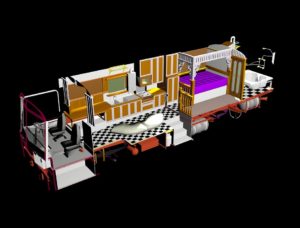 Do you prefer a full bathroom? You may or may not want to add a toilet and shower to your bus conversion depending on your preferences. Keep in mind that some rest stops and campsites have these amenities available.
Do you prefer a full bathroom? You may or may not want to add a toilet and shower to your bus conversion depending on your preferences. Keep in mind that some rest stops and campsites have these amenities available.- What kind of kitchen will you require? Where can it go? Depending on where you want your kitchen to be, you’ll need to check for a place to install a black or grey tank and pipes. The same goes for your bathroom. Your plan can only work if the bus is set up to make it happen.
Electrical & Plumbing
- Do you have the expertise to do electrical work on your own? If not, we advise against it. First, estimate how much electricity you’ll need and where you want to place outlets and switches. Then, hire a professional RV technician to set up your electrical system. If you decide against hiring a professional, you could end up spending way more money trying to repair electrical damage done by an amateur. You might even destroy your bus if you don’t know what you’re doing.
- Do you have the expertise to do the plumbing on your own? After you figure out where your bathroom will be placed, you’ll need to set up a plumbing system. Again, if you’re not qualified to do this, we advise against doing it yourself. It’s best to invest a little more and hire a professional RV plumber to set up your water system.
It’s important to spend your money in the right places when converting a bus. Spending a little extra in places like electrical and plumbing will be worth it. Especially in comparison to paying hundreds of dollars in damages if you set these systems up yourself and something goes wrong. Keep in mind that there are many other areas in which you can also save money. You may decide to install more affordable upholstery, flooring or other decor to cut costs.
RV Insurance
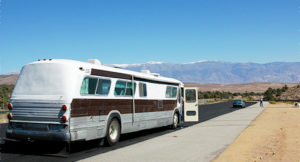 We know that you made an investment in renovating your new home-on-wheels. You need to protect it with the right insurance. Once you decide what you need, it’s good to get a few quotes based on the value and usage of your RV. You may even qualify for Seasonal RV Insurance if you only plan to use your bus conversion a few months out of the year. Speak with a qualified and trustworthy Insurance Specialist at (800) 499-8943 to find out what your options are and to get your free quotes today.
We know that you made an investment in renovating your new home-on-wheels. You need to protect it with the right insurance. Once you decide what you need, it’s good to get a few quotes based on the value and usage of your RV. You may even qualify for Seasonal RV Insurance if you only plan to use your bus conversion a few months out of the year. Speak with a qualified and trustworthy Insurance Specialist at (800) 499-8943 to find out what your options are and to get your free quotes today.
The information in this article was obtained from various sources. This content is offered for educational purposes only and does not represent contractual agreements, nor is it intended to replace manuals or instructions provided by the manufacturer or the advice of a qualified professional. The definitions, terms and coverage in a given policy may be different than those suggested here and such policy will be governed by the language contained therein. No warranty or appropriateness for a specific purpose is expressed or implied.
